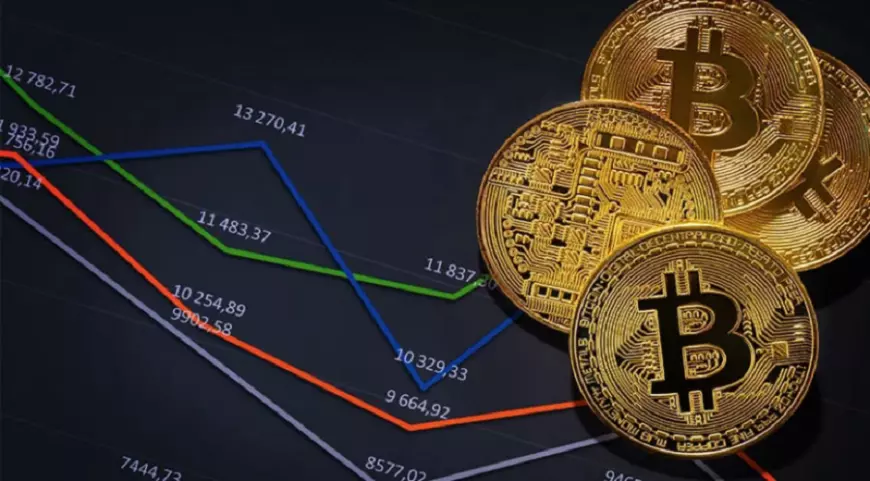Qatar's Sovereign fund might consider buying Bitcoin, but not likely in the $500 billion range
Qatar's Sovereign Fund might consider the notion of acquiring Bitcoin, although committing to a $500 billion investment appears highly unlikely.

Recently, speculations have arisen regarding Qatar's sovereign wealth fund considering a significant investment in Bitcoin. Amid the cryptocurrency's surge to an all-time high of $69,000, analysts observed a new wallet containing over 50,000 BTC (equivalent to over $3.3 billion). Dubbed "Mr. 100" for consistently purchasing 100 BTC daily over several weeks, speculation has arisen whether this entity represents the nation seeking to diversify its sovereign wealth fund, an undisclosed billionaire, or a financial institution accumulating BTC in anticipation of launching an ETF.
Rumors sparked in December 2023 after a tweet from Bitcoin advocate Max Keiser hinted that the Qatari Investment Authority (QIA) might be considering a $500 billion investment in Bitcoin.
Keiser, recognized for his involvement in El Salvador's Bitcoin initiatives, suggested a significant market shift. His statement ignited excitement on social media, contributing to the upward movement of BTC.
"On X, I have one word for you, fans of the $100,000 Bitcoin God Candle: QATAR. The rumors about their sovereign wealth fund considering the purchase of half a trillion BTC are becoming increasingly loud," Keiser remarked.
Anthony Scaramucci recently fueled the speculation further by responding to Keiser's latest tweet, affirming, "It's happening!"
The founder of Skybridge Capital, who recently forecasted Bitcoin's price to surpass $170,000 after the halving next month, expressed gratitude to Max Keiser for the speculation about Qatar's potential BTC acquisition. He wrote on X, "Max is suggesting that Qatar may have incorporated BTC into its balance sheet. If true, all we can say is thank you, Max Keiser!"Although the evidence is circumstantial, the sighting of the Emir of Qatar's private jet at the Bitcoin Atlantis conference in Madeira earlier this month adds to the speculation.
Amidst the speculation, experts suggest that government-level investments in Bitcoin are becoming more feasible. CoinDesk reached out to the Qatar Investment Authority (QIA) for comment. While QIA representatives refrained from discussing specific investment plans, they reiterated a focus on blockchain technology rather than direct cryptocurrency investments.
Talal Tabbaa, CEO of CoinMENA, the first regional cryptocurrency exchange to enter the Qatari market, emphasized a changing landscape where even sovereign states may consider Bitcoin as a viable component of their financial strategy.
He remarked, "Given BlackRock's acquisition of over 200,000 Bitcoin in the last six weeks, it's entirely reasonable for any government to contemplate allocating a significant sum to Bitcoin."
Digging deeper into the figures
The purported $500 billion investment appears improbable given the Qatar Investment Authority's reported assets under management (AUM) of $475 billion. For context, MicroStrategy gradually acquired about 205,000 BTC over several years, amounting to approximately $14 billion at current prices. Acquiring such a large amount of BTC would pose logistical challenges, as each purchase requires a seller. Additionally, questions arise about the feasibility of acquiring around 40% of Bitcoin's total market capitalization.
The world's largest crypto exchange, Binance, holds only about $14 billion worth of BTC in its largest wallet. However, relying on speculated dollar amounts as indicators for potential Bitcoin investments may be misleading, according to Talal Tabbaa. He emphasizes that these figures cannot be verified and suggests caution in interpreting public regulatory positions, indicating a potential distinction between official stances and private investment strategies.
"Financial regulators focus on safeguarding investors, whereas investment funds, both sovereign and non-sovereign, seek returns, which would justify purchasing Bitcoin," explained Tabbaa.
The regulatory environment for cryptocurrencies in Qatar
Cryptocurrency remains illegal in Qatar, with the Central Bank banning Bitcoin trading due to its volatility and perceived risks of financial crime. The focus is on safeguarding the financial system and ensuring economic stability. Qatar is developing a regulatory framework for digital assets, emphasizing investment tokens tied to tangible assets. However, stablecoins, CBDCs, and other cryptocurrencies are not included. Despite Qatar's cautious approach, the MENA region, led by the UAE and Bahrain, is making strides to become a global crypto hub. Dubai's VARA is the world's first independent crypto regulator, with Abu Dhabi driving bitcoin mining in the region.
Tabbaa expressed optimism about digital asset growth in the region, citing progressive steps taken by countries like the U.S. with ETFs.
Distinguishing truth from falsehood
Qatar's purported Bitcoin investment highlights the susceptibility of the crypto sphere to speculative rumors. Considering Qatar's regulatory position and recent financial activities, the likelihood of a $500 billion Bitcoin investment in the near future appears improbable and practically unfeasible.
Nonetheless, there remains curiosity about the identity of "Mr 100" and the validity of the speculation. Are these rumors merely unfounded gossip and imagination? Or do they hint at Qatar's potential inclination towards embracing cryptocurrency assets more fervently?












































